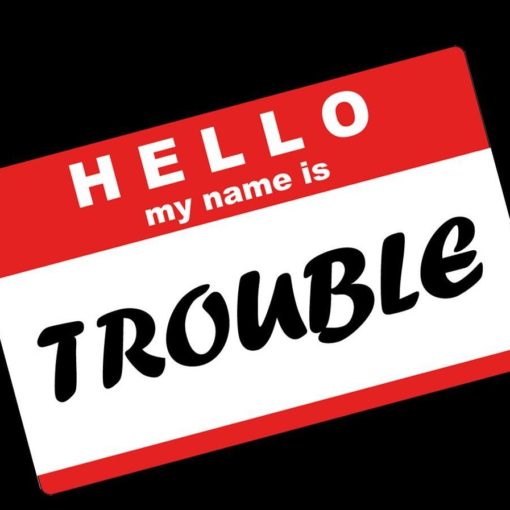Christmas break is always an interesting time. You get to see and talk to people who you haven’t seen or talked to for a sustained period of time for a while. It becomes even more interesting when you play and/or study video games and the community that surrounds them. Some folks will inevitably try to have a conversation with you about them because they have seen you post about them on Facebook or just because they know what you do.
Inevitably I find myself spending some substantial time explaining some complicated ideas to folks who just will never understand. This time around a lot of the talk revolved around internet harassment practices. I think that this can be attributed to more mainstream media coverage thanks to the SXSW anti-harassment panel being canceled, the Law and Order: SVU episode on the harassment of female game designers, and most recently, Jason Fagone’s New York Times Magazine article, “The Serial Swatter” (because it’s NYTM for God’s sake, it doesn’t get more mainstream than that.
 While I had received multiple texts and Facebook messages from well meaning friends who want to make sure that I had seen Fargone’s piece (and to add to their own stash of cool points) I hadn’t yet read it because I’m always a little skeptical of non-gamers who write about things specific to the games (and in this case Twitch) community. Let me start by saying that Fargone does a good job covering the story of a serial swatter and the women that he terrorized, but there was something that just felt like it was missing for me. Especially in a time when we helplessly watch numerous unarmed people of color being murdered by law enforcement with no repercussions. At one point in the piece he even mentions the dangerous possibilities when someone sends the SWAT team to people’s houses.
While I had received multiple texts and Facebook messages from well meaning friends who want to make sure that I had seen Fargone’s piece (and to add to their own stash of cool points) I hadn’t yet read it because I’m always a little skeptical of non-gamers who write about things specific to the games (and in this case Twitch) community. Let me start by saying that Fargone does a good job covering the story of a serial swatter and the women that he terrorized, but there was something that just felt like it was missing for me. Especially in a time when we helplessly watch numerous unarmed people of color being murdered by law enforcement with no repercussions. At one point in the piece he even mentions the dangerous possibilities when someone sends the SWAT team to people’s houses.
But I feel like there is something missing in this piece. And after spending some time thinking about it the best way to put it would be the feeling that Fargone’s piece sees all swatting as being equal. There seems to be little acknowledgement that the experience of women, men, white, and people of color are different because of our histories and our current political climate. And these are worrying things when I sit back and think about the men and women of color who regularly stream their gameplay and have sometimes heated conversations on social media. These are people who stream primarily for the sake of streaming and who love games and simply want to share their gaming experience with the community. At least that is why I stream.
I stream because I like playing games and joking around with friends about what I am playing. But we have kind of an unwritten rule around the NYMG community. We trying make sure that we stream in teams whenever possible so that the streamer can focus on gameplay and commentary while the other of us can hang out in the chat and wield the ban hammer. We do this in an attempt to maintain a sense of civility for us and for the people who are watching us. But, that is a bit of a digression. But what happens when someone in that stream gets angry. Angry because you won’t talk about sex, because you won’t complete puzzles in the ways that you direct, or because they can hear your child in the background (really!). What happens when they decide that the best way to punish you is to SWAT you?
Swatting is a horrible experience no matter who you are, but those experience can differ depending on who you are. If you are a person of a type who is more susceptible to violence in the community (people of color, men of color, men in general) then it becomes even more dangerous. And this is something that I think needs to be addressed in any piece that talks about swatting, especially one that interviews women of a specific type. One of the women mentions that the SWAT team allowed her father to come up to her room to awaken her and bring her down stairs for questioning. This is something that would (almost undoubtably) not have happened had this been the home of an African American gamer. Interestingly enough, this is something that Randi Harper addresses when she was swatted. She recognizes that her experience would have been much worse had she not previously filed a report of the threats of swatting with the police (and I argue had she not been white and living in what she describes as an upscale neighborhood). Consider the death of 7 year old Aiyana Stanley-Jones in Detroit in 2014.
Overall, I am glad that there is more coverage of online harassment in the mainstream press and that people are willing and able to have these conversations, but I think that this is also a conversation that needs to be expanded even more to include discussions of how intersections of race, gender, and class effect people in these situations as well.




